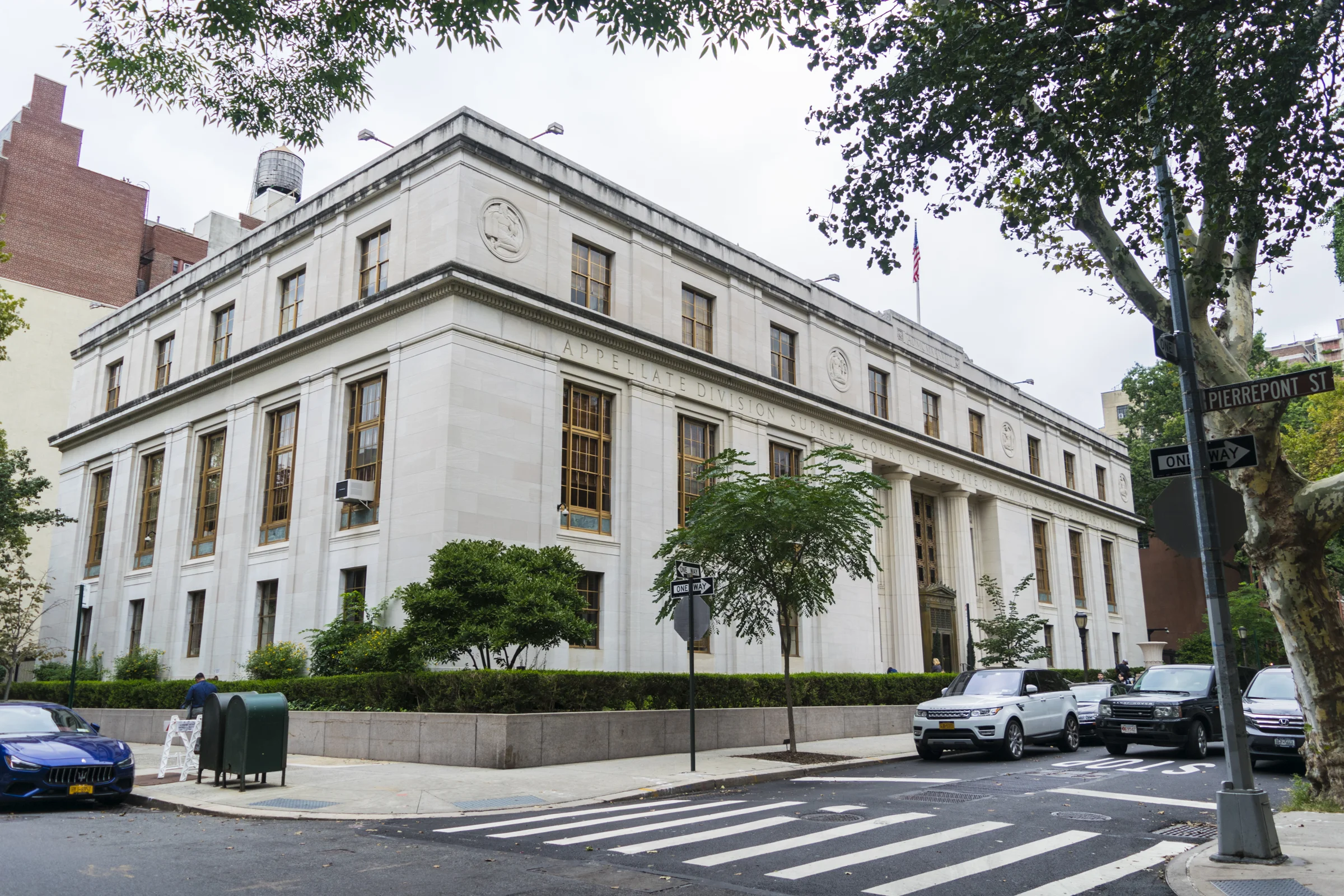High Court Kicks Manslaughter Conviction Back to Queens Supreme
/The Second Department Appellate Division. Eagle photo by Rob Abruzzese
By David Brand
The Appellate Division Second Department reversed a 2016 manslaughter conviction and sent the case back to Queens Supreme Court, stating that the court should not have allowed prosecutors to dismiss a prospective black juror. The four judges released their unanimous decision on Wednesday.
Diamonte Alexander was convicted by a jury of first-degree manslaughter and second-degree criminal possession of a weapon in 2016. Alexander was found guilty of causing the death of Peren Phillippe, 21, as Phillippe exited a subway in Far Rockaway in November 2012.
The four Appellate Division judges wrote that the lower court “failed to determine whether the prosecutor provided sufficient race-neutral explanations for challenging the potential juror.” Justice Gregory Lasak presided at the trial.
New York courts apply a “three-step test” of Batson v Kentucky, a Supreme Court ruling that determined that prosecutors must introduce a “race-neutral” reason to preempt jurors.
“The first step requires that the moving party make a prima facie showing of discrimination in the exercise of peremptory challenges; the second step shifts the burden to the nonmoving party to provide race-neutral reasons for each juror being challenged; and the third step requires the court to make a factual determination as to whether the race-neutral reasons are merely a pretext for discrimination,” the judges wrote.
Alexander’s attorney Sean Murray alleged that the assistant district attorney opposed a potential black juror “based solely on the potential juror’s race” and issued a Batson challenge.
The prosecutor said that she believed the potential juror was too young and inexperienced to serve on a murder trial, according to the Appellate Division decision. After additional questioning of the juror, the court determined that the person seemed to have difficulty understanding the questions and that he seemed to have “a glazed-eye look.”
The court determined that the peremptory challenge was not “in any way based on any discrimination,” but did not rule on Alexander’s Batson challenge, according to court documents.
“Under these circumstances, the Supreme Court failed in its duty to determine whether the prosecutor’s race-neutral explanations were credible,” the Appellate judges wrote.
Alexander’s first trial ended in a mistrial in 2015. He was convicted at the retrial in 2016.
"We will seek leave to the Court of Appeals," said a spokesperson for the Queens District Attorney Richard A. Brown.




